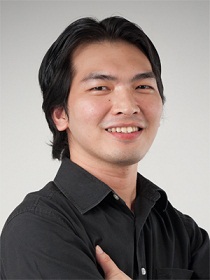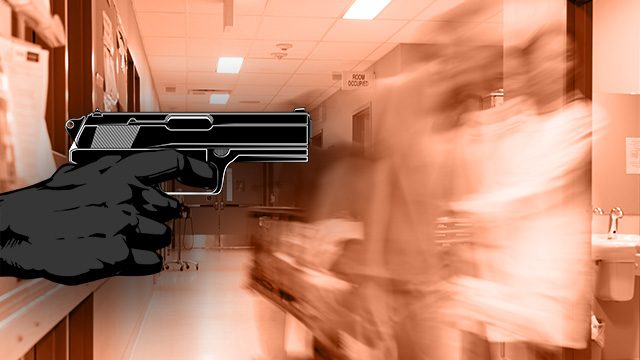SUMMARY
This is AI generated summarization, which may have errors. For context, always refer to the full article.
 I propped myself against her husband’s empty hospital bed as Ofelia Reyes remained seated on the plastic monobloc chair next to it, both hands kneading self-pity and frustration on her lap – repeatedly, pointlessly, helplessly – as she narrated the events that left her shaken, robbed of what little money and hope their family had had left.
I propped myself against her husband’s empty hospital bed as Ofelia Reyes remained seated on the plastic monobloc chair next to it, both hands kneading self-pity and frustration on her lap – repeatedly, pointlessly, helplessly – as she narrated the events that left her shaken, robbed of what little money and hope their family had had left.
Her husband’s operation went well, I had just told her, but even with eyes averted, she could not keep herself from crying as we spoke.
“Parang naririnig ko pa ang mga nangyari, Doc.” (It’s as if I could still hear them, Doc.)
Her husband was still in the recovery room. Despite the sweltering heat in the ward, she never took off her pink sweater, perhaps clinging to it now as her only source of comfort.
I had been held up before, in front of the Supreme Court of all places, so I knew how it felt to have your material belongings forcibly taken, your life threatened. To a person at ease, making the logical choice between the two is easy. But not so to a rattled victim, whose mind could readily be paralyzed by panic leading to indecision, and that is where the danger lies.
“Hayaan mo na ‘yun, Mommy,” I told her, “Ang mahalaga, walang nangyari sa inyo ng anak mo.” (Let it go, Mommy. The important thing is, nothing serious happened to you and your son.)
Misfortune
The day before, I spoke to Ofelia and her husband to explain my contemplated surgery and its accompanying risks. For weeks, her husband had been receiving antibiotics but the mass in his brain did not seem to be decreasing in size.
It could still be pus from hardy bacteria, I explained, but there was a small possibility that it was a tumor, in which case, the surgery could take longer and we would need to prepare blood for transfusion.
There was no blood available for Ofelia’s husband in the hospital’s blood bank, and so at 2 o’clock in the morning, Ofelia, with her son in tow, had to go to Philippine Red Cross (PRC) in Manila and Philippine Blood Center (PBC) in Quezon City to look for blood.
On their way back, in an FX plying the Buendia-Fairview route, they were held up.
The hold-uppers were two males, both in their early 20s and wearing white shirts as if college students. Ofelia and her son sat in the middle row, behind the driver, while the perpetrators were at the back.
There were 3 other passengers in the vehicle. Half-asleep and trying to get as much as rest as she could before she went back to running in and out of the hospital ward, Ofelia thought that one of the men was simply handing his fare to the FX driver.
To her shock, at the end of the outstretched hand was a gun.
“Hold-up ito,” he declared. (This is a hold-up.)
“Huwag kang titigil,” he said to the driver. “Dahan-dahan ka lang na parang walang nangyayari. Kung hindi, pasasabugin ko ang ulo ng mga pasahero mo.” (Don’t stop the vehicle. Drive slowly as if nothing’s wrong. Or else, I will shoot the heads of your passengers.)
His companion took out a long knife from inside his bag.
Roused to complete wakefulness but frozen in fear, Ofelia gripped her son’s hand and looked at him, both of them helpless, with no words necessary to communicate the pity they saw in each other’s eyes.
How much more misfortune lay in wait for their family? Quickly, they handed over their cellular phones and wallets as the rest of the passengers did the same, threatened by the muzzle and the blade that were being nervously pointed from one head to the next.
“Walang tititig sa amin. Kung hindi, papatayin namin kayo,” the man with a gun said. (Don’t stare at us. Or we will kill you all.)
“Kung wala lang akong kasama, Doc, gusto kong tumalon palabas ng FX,” Ofelia said. (If only I were alone, Doc, I would have jumped out of the vehicle.)
Looking through the passenger side window and making a mental calculation of how slow the vehicle was going and how much impact her body could sustain, Ofelia wanted to escape because inside her petite shoulder bag, concealed by her pink sweater, there was 52,000 pesos.
Just 6 hours earlier, she made a deal with their neighbor. For 52,000 pesos, Ofelia mortgaged their house, with a promise to buy it back in 3 months. Her husband would undergo surgery the next day, and she did not want to have nothing in hand for medications and operating room supplies.
Everything in excess, she would use to pay for her 3 children’s tuition, two of whom were in college. Her second son had just told her the unfortunate news that he had failed his scholarship examination. Parang awa niyo na, huwag na itong bag ko, Ofelia prayed and pleaded in silence. (Please, spare my bag.)
But the inevitable happened. The hold-upper with a gun spotted the bag strap on Ofelia’s shoulder.
“Ano iyan? Sabi nang akin na lahat. Ibigay mo sa akin iyan.” (What’s that? I told you to surrender everything. Give that to me.)

Her husband unemployed due to illness, their savings used up, their house mortgaged, their children still not enrolled – Ofelia wanted to cry. She wanted desperately to jump out, to make an attempt to escape with all the money she had left, money that was not even hers to begin with. She could not do it. The man wielding a knife put the weapon right across her son’s neck, sliding it up and down her son’s Adam’s apple, maliciously teasing her as she hesitated.
In resignation, she surrendered her bag.
The two men alighted shortly after. The driver, unharmed, drove to the nearest police station, but the police were unable to trace the suspects.
Good news
It was thus with a heavy heart, that I delivered the good news, it was not a brain tumor. Ofelia tried to suppress her tears as I explained the findings of my surgery and the treatment her husband would undergo prior to being sent home. (To a house did not belong to them anymore, I had to remind myself)
Our team would try to find a sponsor for her husband’s medications, I promised, as I gently pat her back and tried to console her. For now, I could only listen and empathize, as I marveled at the strength with which she faced her family’s burden.
Exhausted, she did not know yet how she would tell her husband, for fear that the news would hamper his recovery. Her son, still in shock, had been sent home to rest.
I was sad and angry, when it had been a straightforward and uneventful operation. I could not help but felt guilty, too, because I did not need to transfuse blood during the short surgery.
Ofelia and her husband did not deserve this. This is not bad luck. This is the society we live in, where the vile and callous prey upon the destitute, defenseless, and despairing.
Doctors could only promise to do our best to heal our patients. Beyond the hospital, out on the streets, the struggle between life and death continues. – Rappler.com
In no particular order, Dr. Ronnie Baticulon is a neurosurgery resident, a teacher, and a writer. He blogs at http://ronibats.ph.
Blurred hospital image via Shutterstock
Gun vector via Shutterstock
Add a comment
How does this make you feel?
There are no comments yet. Add your comment to start the conversation.